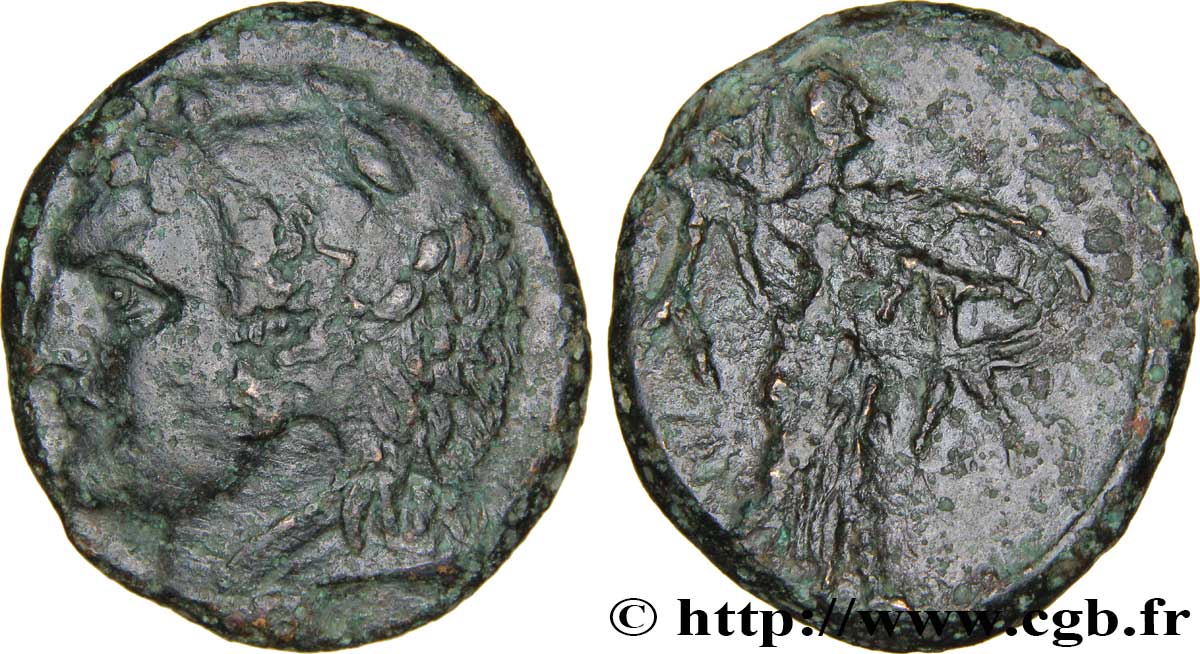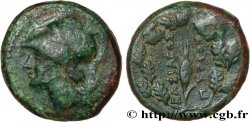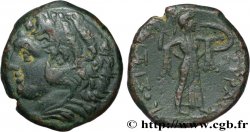E-auction 43-17168 - bgr_307549 - SICILY - SYRACUSE Hemilitron
You must signin and be an approved bidder to bid, LOGIN TO BID. Accounts are subject to approval and the approval process takes place within 48 hours. Do not wait until the day a sale closes to register. Clicking on « bid » constitutes acceptance of the terms of use of cgb.fr private e-auctions.
Bids must be placed in whole Euro amounts only. The sale will start closing at the time stated on the item description; any bids received at the site after the closing time will not be executed. Transmission times may vary and bids could be rejected if you wait until the last second. For further information ckeck the E-auctions F.A.Q.
NO BUYER'S FEE.
NO BUYER'S FEE.
| Estimate : | 175 € |
| Price : | 41 € |
| Maximum bid : | 50 € |
| End of the sale : | 10 February 2014 15:02:30 |
| bidders : | 8 bidders |
Type : Hemilitron
Date: c. 278-276 AC.
Mint name / Town : Syracuse, Sicile
Metal : bronze
Diameter : 23 mm
Orientation dies : 1 h.
Weight : 8,24 g.
Rarity : R2
Coments on the condition:
Exemplaire sur un flan large et ovale bien centré des deux côtés. Très Beau portrait d’Héraklès à gauche. Joli représentation du revers, mais métal légèrement piqué. Jolie patine vert foncé, granuleuse au revers
Catalogue references :
Obverse
Obverse description : Tête imberbe d’Héraklès (Hercule) à gauche, coiffée de la léonté, nouée sous le cou.
Obverse legend : [SURA/KOSIWN]
Obverse translation : (des Syracusains).
Reverse
Reverse description : Athéna Promachos (Minerve victorieuse) marchant debout à droite, brandissant le foudre de la main droite et tenant un bouclier de la main gauche, l’égide tombant de l’épaule.
Commentary
Pour ce type, nous avons deux type bien différents. Au revers, la représentation d’Athéna Promachos fait penser à un statue cultuelle de la déesse qui pouvait être transportée.








 Report a mistake
Report a mistake Print the page
Print the page Share my selection
Share my selection Ask a question
Ask a question Consign / sell
Consign / sell
 Full data
Full data









